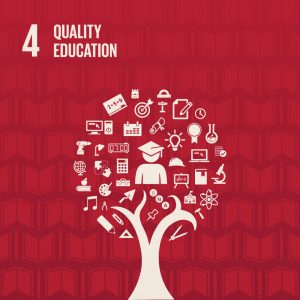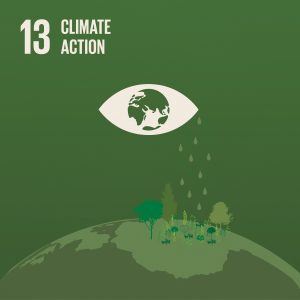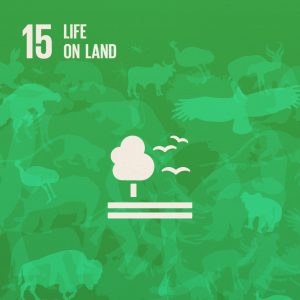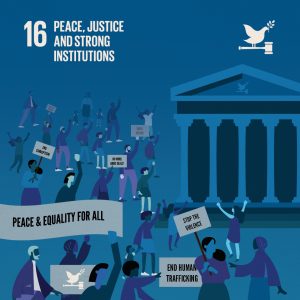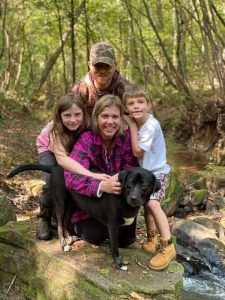
Karen on a hike with her family
By Camille Colter, Office of Sustainability
Karen McNeal is a professor of Geosciences within the College of Sciences and Mathematics, hired as one of the first disciple-based education researchers (DBERs). DBERs conduct nontraditional disciplinary research on education. Karen’s work focuses on understanding how people think and learn about the earth: what they know, what they perceive, their attitudes, mental models, and how to better teach, learn, and communicate about topics. Communication is done with students, informal audiences, and stakeholders through coproduction – producing actionable research with a stakeholder who helps guide the process.
Karen was one of the professors who helped initiate the Water and Climate Symposium to bring together campus researchers and stakeholders. This event was held this year on March 21st for the second year in hopes of continuing to be an annual event. The symposium is part of Auburn’s initiative with the National Science Foundation (NSF) Research Traineeship Program (NRT) and was done in partnership with the Water Resources Center. The vision of this symposium is to see Auburn University grow into a group of interdisciplinary scientists, who then network and collaborate. Graduate students and faculty gave three-minute lightning talks and presented posters about their work. Stakeholders were invited to share their work in these lightning talks and through a panel to answer student questions.
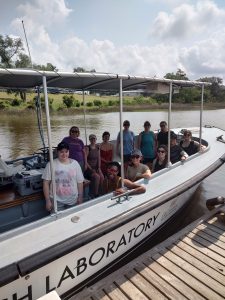
Karen and her students
Karen’s career took a natural progression to focus on climate and sustainability because learning about the environment went hand in hand with learning how to protect it. She pursued degrees in Marine Science, Oceanography, and Geology and had an environmental minor in her undergraduate studies. Outside of the classroom, she has spent most of her life in the Southeast and recognized the great sense of place and connection to nature people had while often ignoring the aspect of taking care of the place we call “Sweet Home”. Alabama schools have limited environmental and earth science education since most experience their last earth science class in the eighth grade. This education gap is one of the reasons Karen conducts her research.
A particularly fun part of Karen’s role is when she takes new graduate students in the NRT program on a trip somewhere in Alabama to better connect them to their new environment. This traineeship is a great way to empower graduate students to follow their aspirations about the type of role they wish to have in climate science and education. The program teaches students how to communicate with public audiences that may not want to spend thirty minutes listening to the science but want to know there is hope when we are aware and openly communicate about the issues our earth faces.
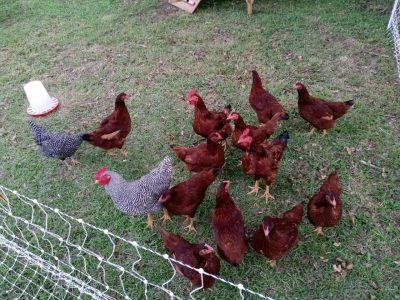
The chickens on Karen’s family farm
Academics is not the only place Karen finds happiness. She loves spending time with her family and outdoors. Hiking and exploring her family farm give her a way to be outside enjoying nature. Their farm has 15 egg-laying chickens and a 1500-square-foot garden that is helping them produce some of their own food. Another passion of hers is incorporating and communicating with faith-based leaders about climate change issues, which she finds to be an essential topic in the Southeast.
Karen recently began a formal role for the NSF and will no longer be associated with the NRT program, so a new adventure awaits!
Learn about the SDGs & AU and our contributions related to this post.

